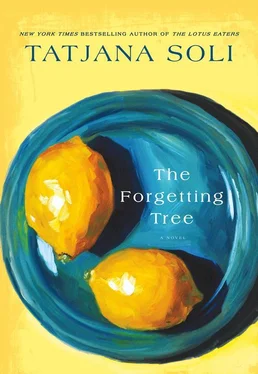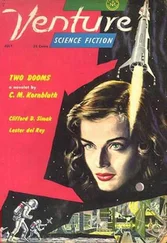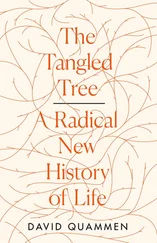When she woke, the dog was sitting, watching a young black woman pushing a pram with a yellow-haired baby. Marie called out, “What time is it, sister?” and the woman answered, “Five in the afternoon. Time to quit loafing.”
Marie laughed at the tease, and the woman laughed back. She had skinny, bowed legs, with a big space between her front teeth. She struck a match against the pavement and lit a cigarette. “They don’t let me smoke in the house. Is he friendly?” she said, pointing at Rolex.
“She needs to be, doesn’t she?” Marie said.
“Be careful. The police don’t like our faces around here unless we working.”
“I hear you. Any chance your people would want this dog?”
The woman looked at Rolex as she shook her head. “No chance. The woman don’t like any dirt in her house.”
“That’s too bad.”
“It is.”
“You get good job here?”
The woman nodded. “Many Haitians nan Florid. But we’re all still dreaming of the promised land, nuh ? Got to get going.”
She walked on. Marie took out her lunch, ate half and fed the rest to Rolex. The dog gulped without chewing, looking for more. No more here, Marie thought. It was too sad to want to give more than you had. Sitting under that tree, she was as happy as she’d been since leaving home, but she knew that she would have to move on again. If the island was about standing still, America was about moving, even if you were past dead tired.
She walked through the park to the edge of a long street of houses that looked like mansions to her, like the palaces of kings in the Bible. Grander than the pink house on the hill even. Marie could tie Rolex to a streetlamp, but she worried that this would make the dog helpless, and perhaps only the police would rescue her, take her back to the shelter from where she started.
No, Marie thought as she untied her, Rolex is wise enough to recognize kindness when she runs across it. Marie had not seen much of it herself since she’d come here, the only god she saw worshipped so far was money, but this freedom was the only gift she could afford to give.
Sometimes it felt as if they were both dumb animals, lost and alone in the world. She felt the flame of good in the world was riding lower; lately she felt it guttering, about to blow out.
Maybe Rolex would walk up to that big white house with burning lights in the window, and she’d curl up on the porch by the door, and the pretty yellow-haired family that lived in it would come home and find her curled asleep, and they would see that she was precious, and they would take pity, which was the most that anyone could hope for.
Maybe after weeks and months of comfort, Rolex would be restored to herself, to the way she was before Marie ever saw her. She will only remember her shower, Marie’s hands rubbing shampoo into her fur, only remember their run, the sharp, clean air as they fled. She will recall as her true beginning the day in the park, their nap as her resurrection, and Marie her weak angel, who brought her to the life that was surely waiting for her, the life that should be promised to all.
Marie took off the ribbon that held her hair and wrapped it around Rolex’s neck and tied a bow so that anyone looking could see that she had been loved.
Rolex strained ahead, sniffing the night air as Marie unclipped the chain from her collar, and then she was gone.
The less you have, the more the pain in losing what remains.
Marie stood alone in the park for an hour, hoping Rolex would return and hoping she would not. At last Marie started walking, one foot in front of the other, and found herself at Coca’s house. When Coca saw her — a ghost at the door — she dropped the plate she was drying, confirming that Marie’s hold on this life was weak.
“ Kisa ki rive ou? What happened to you? Why did you come here?”
“Where else?”
“You took the dog. They’ll make trouble now.”
“It doesn’t matter.”
“If they see you here, I’ll be fired.”
Marie gathered her few shirts, a toothbrush.
Coca watched, biting her lip. “ Ou byen? You okay?”
“No loss. I couldn’t work there another day.”
“Wait.” Coca walked into the next room. Marie heard her on the phone, wondered briefly if she was turning her in, betrayal now a commonplace, but then Coca came back with a big smile on her face. “There’s this lady I worked for. She called, asking if I wanted to come back. Problem is that you have to live there, and I have family, my boyfriend, to look after. It’s far on the other side of town. But for you…”
“Can’t be far enough now.”
“Just cleaning her house. She lives alone so there’s not much mess, only dust. But don’t do anything crazy, like with the dog, oke ?”
Marie was shaking now, relief unlocking her bones. Already sure that she’d run out of last chances. “I can clean.”
“Course you can,” Coca said.
“ Mesi, thank you. You save my life.”
Marie started to cry, but Coca brushed her away. “One does what one can. Look, I tell the lady you’re my cousin from Trinidad.”
“I’m Haitian. She’ll never believe me.”
Coca looked at her, eyes disbelieving. “Don’t you know, girl, we’re all the same to them?”
* * *
Marie borrowed money from Coca for the bus and walked to the station. It didn’t matter if she waited hours or days because this was the only slip of life she had left to try. She spent her last dollars on a sandwich and a Coke and even bought a candy bar in a spike of reckless hope.
Two hours later the bus dropped her off in a fancy suburb outside Miami. A warm night, the terminal was open to the air, brick and lacquered-wood benches scattered under a roof of grapevines. Marie slumped down on a bench and slept until the janitor poked her awake at dawn and told her to leave. That was what she was learning of this new country — no matter how lovely the place, one could never stay long, but had to keep moving.
She clutched the piece of paper with the address as if it were a lottery ticket. She wandered the streets reading the signs. Finally a garbage truck stopped to load cans, and the men were from Cité Soleil. They smiled, and they greeted her like long-lost kin— Bonjou! Komon ou ye? N’ap boule! — the taste of familiar words in her mouth gave her strength. They read the address and pointed the way, offering a ride, but Maman ’s girl couldn’t arrive for her new life with the garbage, so regretfully said no. Other than the trash truck, nothing moved in the silent, empty streets. The houses were set behind high walls, barricaded behind prickling, thorny hedges of bougainvillea.
* * *
At seven in the morning, Marie was staring at a white building that looked as if it were a set of child’s blocks stacked one against another, filled with silvered glass on all sides. She checked over and over to make sure this unlikely place was the address on the paper. Unsure, she walked up the bleached-rock driveway that shushed under her feet like a rocky beach and dropped the fish-shaped knocker against a copper door, heard it echo through a large, empty space.
No one answered. She stopped and studied the street, then turned back again to the knocker, which she lifted and let fall, and heard a gunlike bang ricochet on the other side. The door gave way under her knuckles, and she dipped forward as a thin, tall woman wearing a white robe squinted down. Her face was tanned and sculpted, the skin shiny tight over the bones. When she smiled, it was quick and painful, her eyes remaining fixed and cold.
“You’re Coca’s cousin?”
“Yes, ma’am.”
Читать дальше












